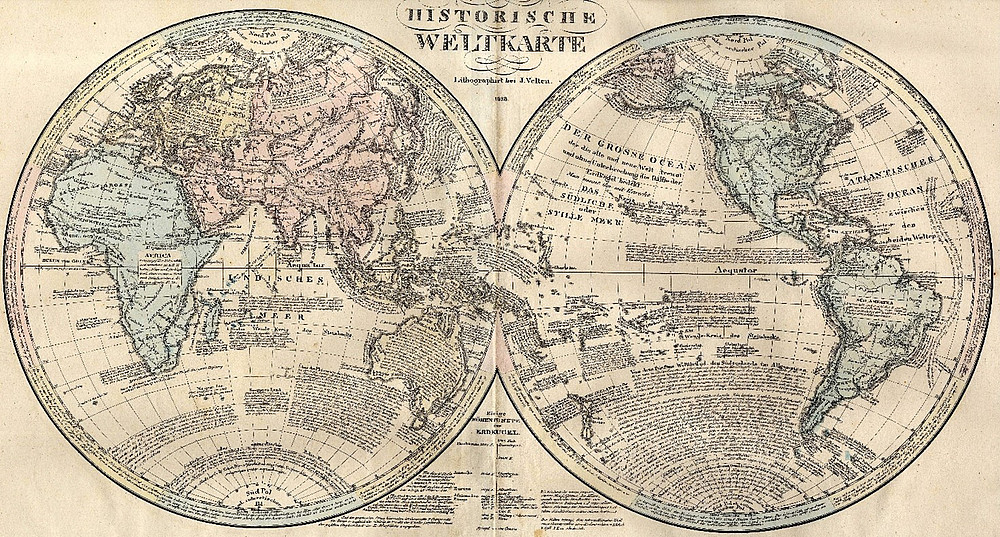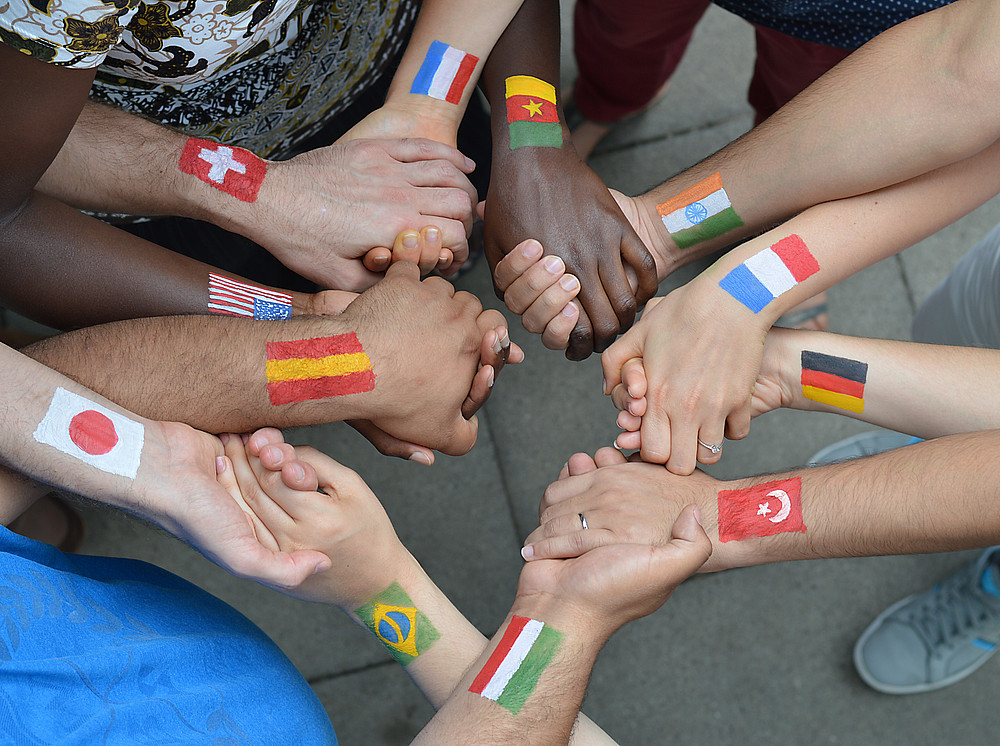Introducing our research areas
Translation, History and Politics
The research area Translation, history and politics is dedicated to the historical reconstruction and historically derived interpretation of translational practices, translation policies and translation culture. Our approach combines the history of translation with a transnational, transcultural and multilingual historiography. We see translation as a suitable methodological-theoretical prism for a relevant general historiography.

In addition, the reconstruction of historical practices has the potential to contribute to a stronger historicization of translation studies and thus calls into question the supposed innocence of translation from a disciplinary-historical perspective. The focus is on the actors involved, as well as translational impulses that lead to changes in economic, political, religious or social power relations. At the same time, the question arises as to how translation is controlled, how these control factors contribute to the demarcation between translation and other transcultural practices, but also how historically shaped translation cultures are subject to constant change between varying economic, political, religious or social concerns and claims to power.
We are concerned with the following research questions:
- How do different forms and policies of translation operate in times of social, political, cultural upheaval?
- What role does translation play as a historically complex practice of transnational knowledge creation and transformation?
- How can established conceptualizations of translation be questioned or expanded through their historical investigation?

Translation, Migration and Minorities
Translation plays a central role in the encounter between linguistic, social and cultural majorities and minorities. Our culturally and socially oriented research in the field of Translation, migration and minorities focuses on phenomena of translation that are characterized by asymmetrical power relations as well as political, ideological, social and cultural barriers. Key features of our research are an orientation towards social problem areas, an emancipatory character and socio-political aspirations.
We research translation in the past and present, in professional and non-professional contexts, human and technologically mediated translation. Our research is inter- and transdisciplinary. Our cooperation with non-university institutions such as public authorities, NGOs, intergovernmental organizations and interest groups allows us to implement our research findings. We aim to raise awareness of the complex social and cultural contexts of translation, develop curricula, develop models and measures for shaping the framework conditions of translation and identify opportunities for expanding the scope of action of the actors involved.
We are concerned with the following research questions:
- What role does translation play in NGOs, with public authorities, in the medical-psychosocial care of migrants and d/Deaf people, in crisis and disaster areas?
- Does the dichotomy of professional vs. non-professional interpreting work in the context of migration?
- How does digitalization influence translation in the context of migration and minorities?
- Which concepts and models from other disciplines can we use for our research in order to investigate the complex framework and realization conditions of translation in the lifeworld of immigrant and native minorities?
- Which new research approaches and methods are appropriate for our field of research?
Translation, Ethics and Digital Transformation
The research area Translation, ethics and digital transformation takes a critical look at the historical dimensions and socio-political significance of language and translation technologies. We examine various phenomena of digital translation from a socio-cultural and empirical perspectives, focusing on their ethical, ideological, (geo)political, social, economic and media entanglements.

The focus is on the relationship between translation technologies and society as well as multimodal and cooperative forms of transcultural communication. These include translation technologies such as machine translation and interpreting, automatic speech recognition and synthetic speech output, multilingual chatbots, intelligent language assistants, photo-based translation apps and sign language avatars. Of particular interest in this context are pedagogical and didactic questions regarding the education and training of translators and interpreters as well as the individual and social impact of AI-based multilingual language and translation technologies.
Our research focuses on the following questions:
- How are perceptions of and approaches to translation evolving in the face of the rapidly increasing mechanisation and automation of translation processes?
- What impacts does the rapidly increasing use of machine translation have on the working methods, economic conditions and status of professional translators?
- To what extent does the output of machine translation systems reflect social stereotypes (e.g. gender) and how can translation technologies be designed to be more inclusive?
- How must Translation Studies institutes transform themselves against the backdrop of digitalization in order to be able to offer students a modern, sustainable and critical education in the future?